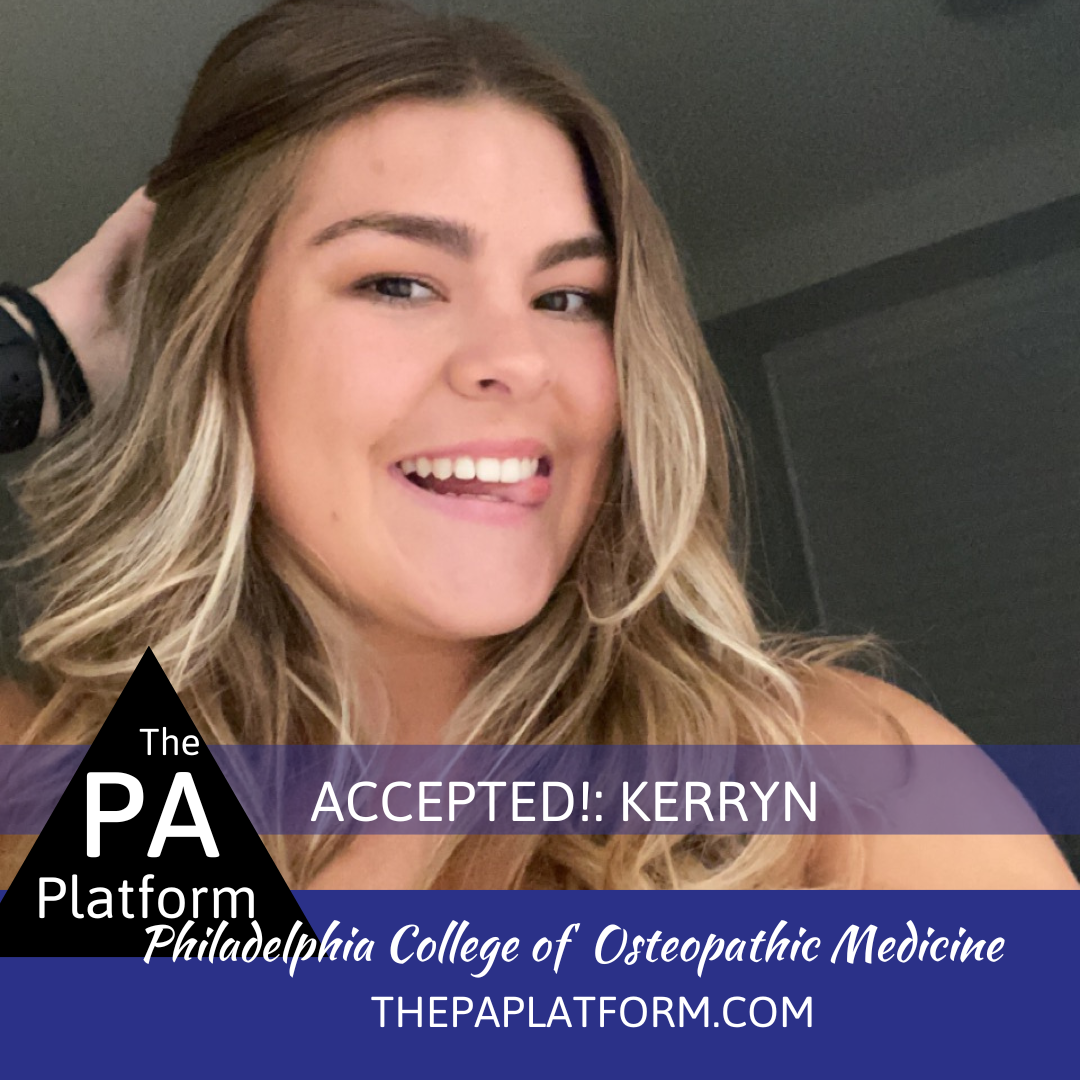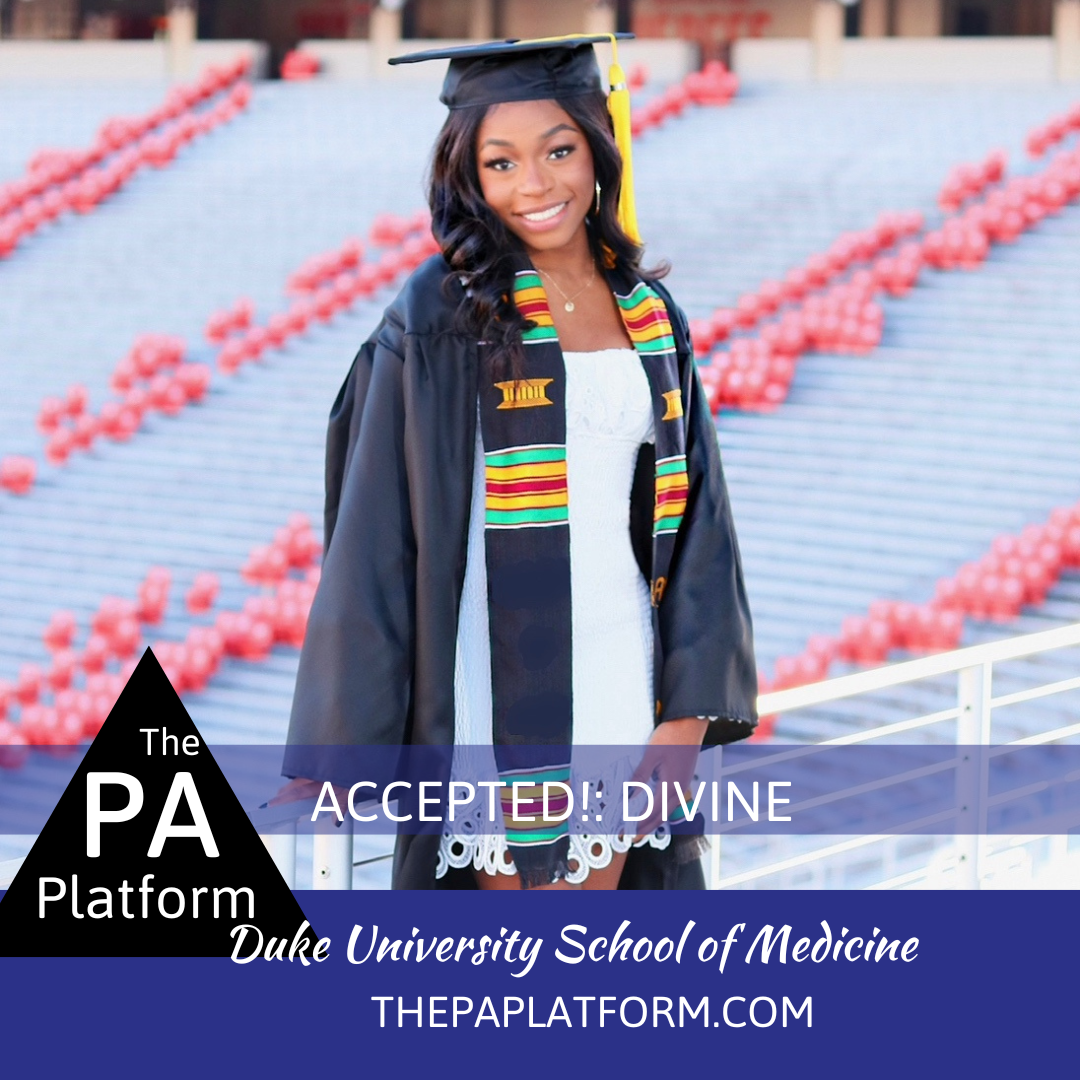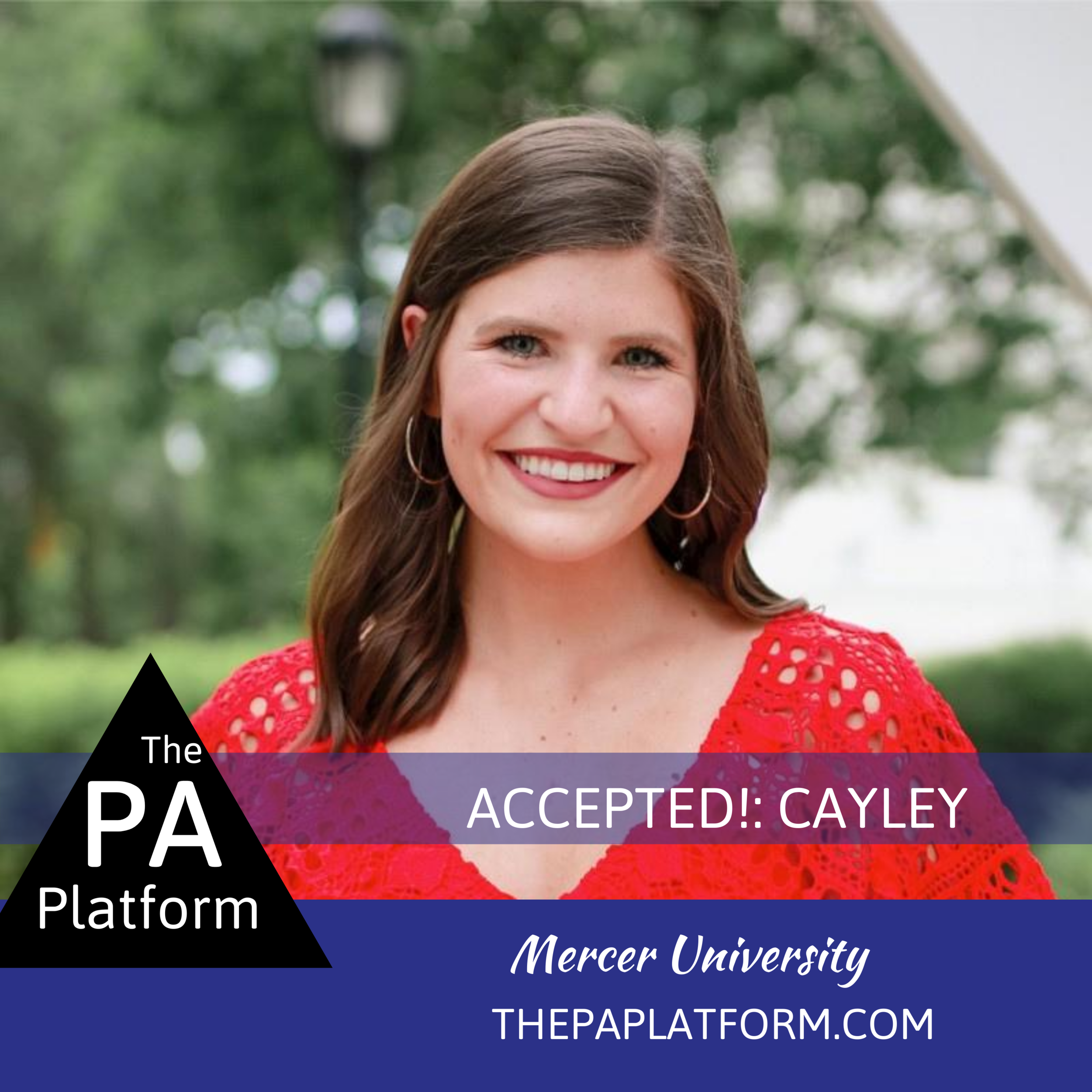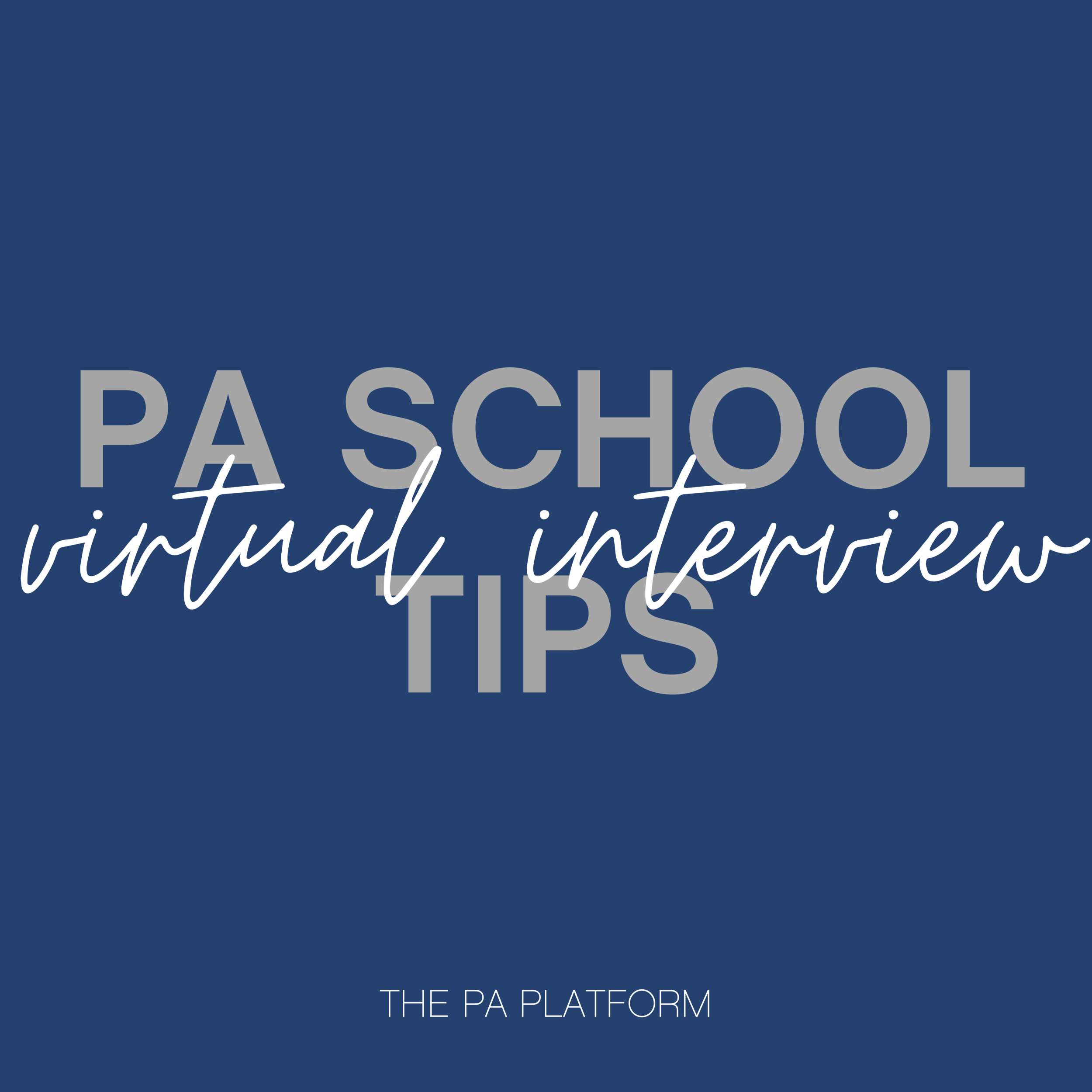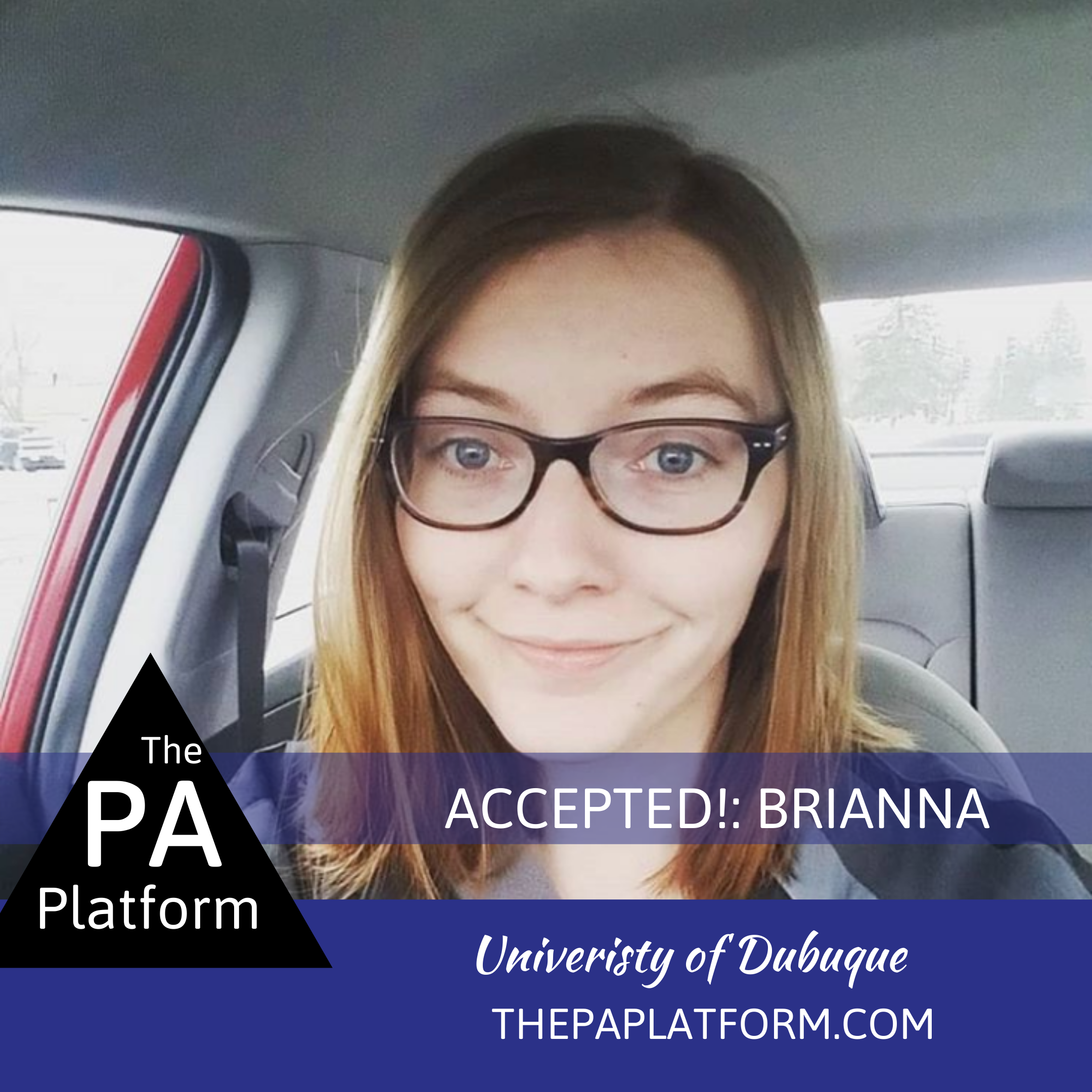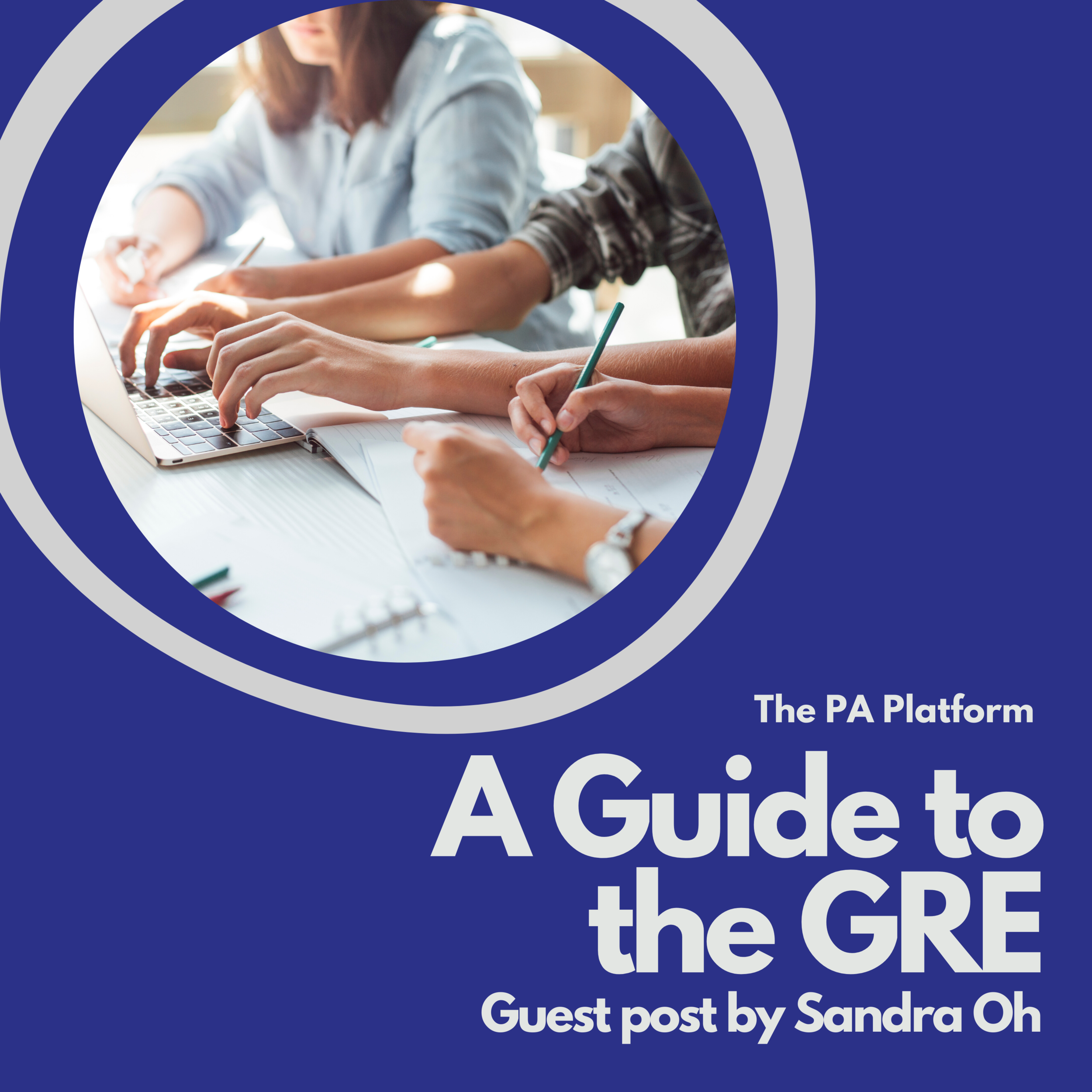As if applications aren’t stressful enough, the uncertainty of COVID-19 affecting PA school admissions can make this even more challenge for pre-PA students. This entire situation is outside of everyones control and something worth addressing.
Disclaimer: These thoughts and opinions are strictly my own; they are not thoughts and opinions of any specific program. If you listen back a couple episodes to when we talk to admissions committee members and admissions directors of different programs (Meghan from @emergencymedmentor and Jed Grant, admissions director at University of the Pacific), they both touched on COVID as well. Today’s opinions are strictly my own, so I could be completely wrong. However, I've talked to enough admissions members and looked at enough websites to have a good idea of what they think.
Please be graceful with programs right now
I know that you have a lot of questions and to be perfectly honest, they probably do too. Everyone is trying to figure this situation out. Programs need to juggle their clinical year students who may have been kicked off of rotations and need to graduate. A lot of the programs that started in the summer are trying to figure out how to move their didactic portions online. Plus, they're trying to figure out what to do with the whole application process and what changes they're going to need to make.
The people who are running the PA program jobs just got a lot harder trying to juggle everything that is going on. If a school takes a little time to respond to you or don't give you a very distinct answer, just know that they are trying their best! They will figure it out, one way or another.
I'm am giving my personal opinions on how I think this will affect the application cycle for this year. A lot of questions I've been getting are:
Do you think that schools are going to change their requirements or bend their prerequisite requirements to allow students to apply if they don't meet the requirements? Especially for applicants who have been unable to secure additional shadowing, volunteering, and working hours.
Personally, I don't see those requirements changing very much. All this COVID stuff started happening around mid-late March, and that's really only a month before CASPA opens. I think the way PA schools view it is that someone who is ready to apply to PA school should have all of those boxes checked ahead of time and already have everything done.
When it comes to the applications coming in, the schools are still going to have plenty of qualified applicants to choose from; there's not going to be a shortage of applicants. Around 30,000 people apply to PA school every year, and there are not nearly that many spots available. It may actually make their lives a little bit easier because maybe they'll get less applications this year. I still think there will be enough qualified applicants to fill their classes with what they're looking for. So I don't think we are going to see any need to change those requirements.
When it comes to coursework and prerequisites, some schools have been giving the option for students to choose Pass/Fail instead of receiving a letter grade, especially the classes that have moved to online. From what I’ve seen, when it comes to Pass/Fail classes, the majority of programs still do not accept a Pass/Fail class as a prerequisite requirement. They still want to see a grade for those prerequisite classes.
If you are taking a “filler” type class such as English or Dance to fulfill your university’s requirement, the program you plan on applying to will not care as much if those type of classes are P/F as they are not incorporated into your GPA when CASPA calculates it. I've seen a few programs that have said that they will take it on a case by case basis, especially if you weren’t given a choice to switch to Pass/Fail. However, if you choose to make a prerequisite Pass/Fail, I think you need to plan on retaking that class for a grade for a future date.
In regards to online classes, from what I’ve seen, most programs are accepting classes and labs that have moved to an online format. That is not something you could have predicted or signed up for, and you don’t really have a choice. Since the semester is over, if the majority of your class and lab was in-person, the PA schools are being a bit more flexible with their requirements in regards to this.
I have also seen that some schools are putting a limit to this online classes/labs policy i.e. just spring semester or spring/summer semester. You have to triple check with the PA program websites, especially as these changes are occurring in real time with a lot of discussion around them. If you have been on the Pre-PA Club Facebook group, there is a lot of discussion about this on there as well. Members have been great and updating our posts as soon as they hear things from different programs, which has been very helpful.
Let’s talk about testing.
I know some students have been unable to take the GRE or PA-CAT because your tests got cancelled. I'm hoping these testing centers will be opening up soon, but they have started an at-home test taking option. Some schools are actually waiving their GRE requirement for this cycle, and some schools are still requiring it. You technically should still be able to take it. Yes, it is more difficult, and scheduling is a huge issue, but that is something many programs are still requiring. Make sure you are double-checking the websites and whether the school is requiring the GRE/PA-CAT or not.
What about applicants who are unable to obtain hours now due to cancellation of shadowing, volunteering, or working opportunities/positions?
When it comes to working, depending on what your job is and your qualifications, you can certainly be looking for new jobs. I know a lot of people, even a lot of PAs, have been furloughed or fired. It is actually very difficult to find PA jobs right now because patient census numbers are low across the board. If you are looking for a position, see if there is anywhere you can help and as soon as things get back to normal-ish, there will be a need for people in every single position. Some people who lost their jobs during this time may even figure out that they don’t need that position and do not want to go back to work. Be on the lookout and start researching positions now.
With volunteering, as soon as you can go back, do it. I have had some people tell me that they have been making masks and if they can put that down as volunteer hours. You could, but I personally would not. I will get into that a bit later. Unless it is a formal volunteer event/organization with a supervisor that you can list, I typically would not place that in the volunteer section in CASPA.
It has been more difficult to get those shadowing hours as well. Even med students and PA students have been unable to complete their rotations because of lack of PPE and safety of students. Shadowing opportunities will come back. Unless the programs you are applying to have changed their requirements, I would probably only apply to those schools for which you meet the minimum requirements.
If a program only has a recommended requirement or no requirement at all, go ahead and go for it. There likely will be some leniency there, and you would want to go to a program who is looking at everything that is going on right now and taking it into consideration. You just need to go with what you got and make the best of it.
You can also use this “downtime” to really work on things. You can use this time to really work on your personal statement, your experience details, organizing your information, ordering your transcripts, and just getting everything together for your application cycle if you’re applying this year. That will decrease your stress when it’s time to go back to work or volunteering too!
What about letters of recommendation? How are you suppose to ask for a LOR during this weird time?
Just ask! You don’t know what that PA is going to say. A lot of jobs have a lot of downtime right now, so maybe they will be able to write you that letter, unless they are in one of those really busy areas or specialties. You never know until you ask. If they do say that they are unable to write you a letter at this time, the sooner you ask, the more time that gives you to find a back-up/another option.
How you ask mostly depends on your relationship with that person. Just think about how well you know that person and which method they would be the most receptive to. In general, you should always have some backup letter writers in mind just in case something falls through. I’ve even heard of an applicant who asked someone for a LOR and that person unfortunately passed away. You always want back-ups in mind! You want to ask those people who know you best but also fulfill the requirements for the programs you are applying to. If you have a question about any of the schools requirements, reach out to them!
Now let’s talk about CASPA’s COVID essay.
This is new this year. My personal opinion is that they created this essay so that everyone’s personal statement wouldn’t just be talking about COVID. So this is an optional COVID essay, which is 2500 characters without spaces. This is what it says on CASPA:
Please describe how COVID-19 has impacted your pathway to becoming a physician assistant. The questions listed in the application can help you get started, but you do not need to limit your responses to only these considerations.
ACADEMIC:
Did your school move to an online only curriculum?
Were you able to interact with your professors?
Did you have to learn an academic program stateside or abroad?
Did your school require you to move to the Pass/Fail grading system?
Did your original GRE exam get cancelled or delayed?
Were there other academic barriers?
PROFESSIONAL:
Did you have to go out and seek new job opportunities?
Did you lose a job?
Were there other financial or professional barriers that you faced personally?
PERSONAL:
Did you have to move out of the house or dorm?
Did you have to cancel travel plans?
Did you modify your planned experiences related to healthcare or volunteer opportunities?
Did you seek out volunteer opportunities that arose from the crisis?
A question I get a lot on Instagram is, “Will I be thought of poorly if I don’t write this essay?” I am a firm proponent of using every space, given on your application.
I think it's worth using that space to at least address something! At the very minimum, this has shown us a lot about healthcare and either hopefully reassured your passion for wanting to be in medicine (because this is real medicine happening right now!) or maybe it’s the opposite. Maybe it has made you a little bit scared to be in medicine, and that is something you are going to have to look at and kind of evaluate yourself. I would at least put a paragraph in there about how this has affected you because I do think it has affected all of us in some way or another.
I would not personally use this as a place to make excuses. I would focus on it being a very positive essay, more about how you made the most of this time and what you got out of it. If there is something that happened as far as limiting your job, hours, academics, or anything, I would just state that very clearly with how it affected you. For example, “I had to leave my job as a CNA because there was no need for me anymore, but I've learned XYZ about this whole process. It's made me more grateful.” Really take the time to self-reflect on that and figure out what this has meant to you personally.
How will interviews be affected?
Some schools have already moved to an online interview format, especially the ones that were still interviewing in March and April. I can see that happening more and more.
As an applicant, that's going to cut down on costs for you with traveling, and maybe schools will see that that's a viable option. Unfortunately, you won't get to actually see the program. I think schools will have to adjust their interview cycles, maybe push them out a little bit more, maybe think about where they're interviewing people from and try to stick to people who can drive versus fly. It is hard to say exactly how this will affect interviews.
I do think you should be prepared to get asked about this, similar to those questions that are on the COVID essay, like how it has affected you. I could see some ethical questions coming up about ventilator uses, as that's been a hot topic. It’s something that you need to be aware of, somewhat well versed in, and definitely need to think about a little bit.
Overall thoughts:
My biggest piece of advice is, just make sure you're double and triple checking websites for each program. Just stay on top of it as much as you can. Ask questions! I'm also happy to try to find you answers or point you in the right direction. Feel free to reach out with any questions, comments, or ideas. Thank you for reading!


